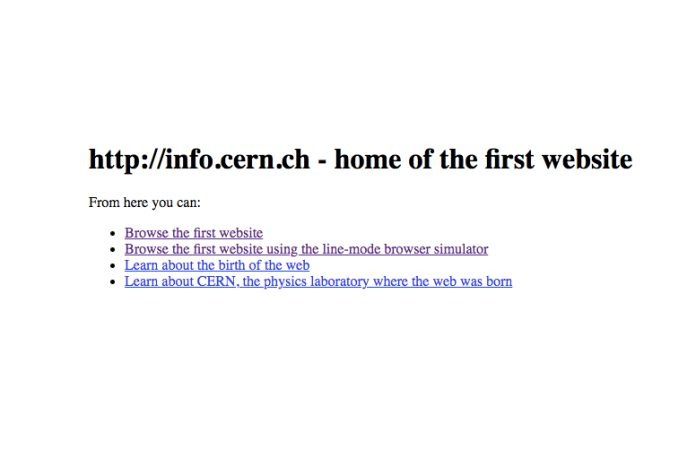The first website in the world was/is http://info.cern.ch/
This was conceived and developed at European Council for Nuclear Research (CERN), Geneva by Timothy Berners-Lee, (better known as Tim Berners-Lee) for automated information-sharing between scientists and research institutions around the world. The idea was to have an “online” system where research data/information could be placed which fellow scientists could access anytime from anywhere.
Towards this goal, Berners-Lee, as an independent contractor, made a proposal to CERN in 1989 for developing a global hypertext document system. This was based on use of Internet which was already available by that time. Between 1989 and 1991, he developed the Universal Resource Locator (URL), an addressing system that provided each Web page with a unique location, the HTTP and HTML protocols, which defined how information is structured and transmitted, wrote the software for the first Web server (the central file repository) and the first Web client, or “browser” (the program to access and display files retrieved from the repository). The World Wide Web (WWW) was thus born. The first application of this was the telephone directory of CERN laboratory.
CERN put the WWW software in the public domain in 1993 and made it available in open license. This enabled web to flourish.
The original website info.cern.ch was restored back by CERN in 2013.
Tim Berners-Lee’s development of the world’s first website, web server and web browser has revolutionised the way information is shared and accessed on the internet. His principles (viz., HTML, HTTP, URLs and web browsers) are still in use today.
It is one of the most important innovations that has touched the lives of people around the world and has changed the way we live. Its societal and economic impact is simply immeasurable.
***
Source:
CERN. A short history of the Web. Available at https://www.home.cern/science/computing/birth-web/short-history-web
***






































